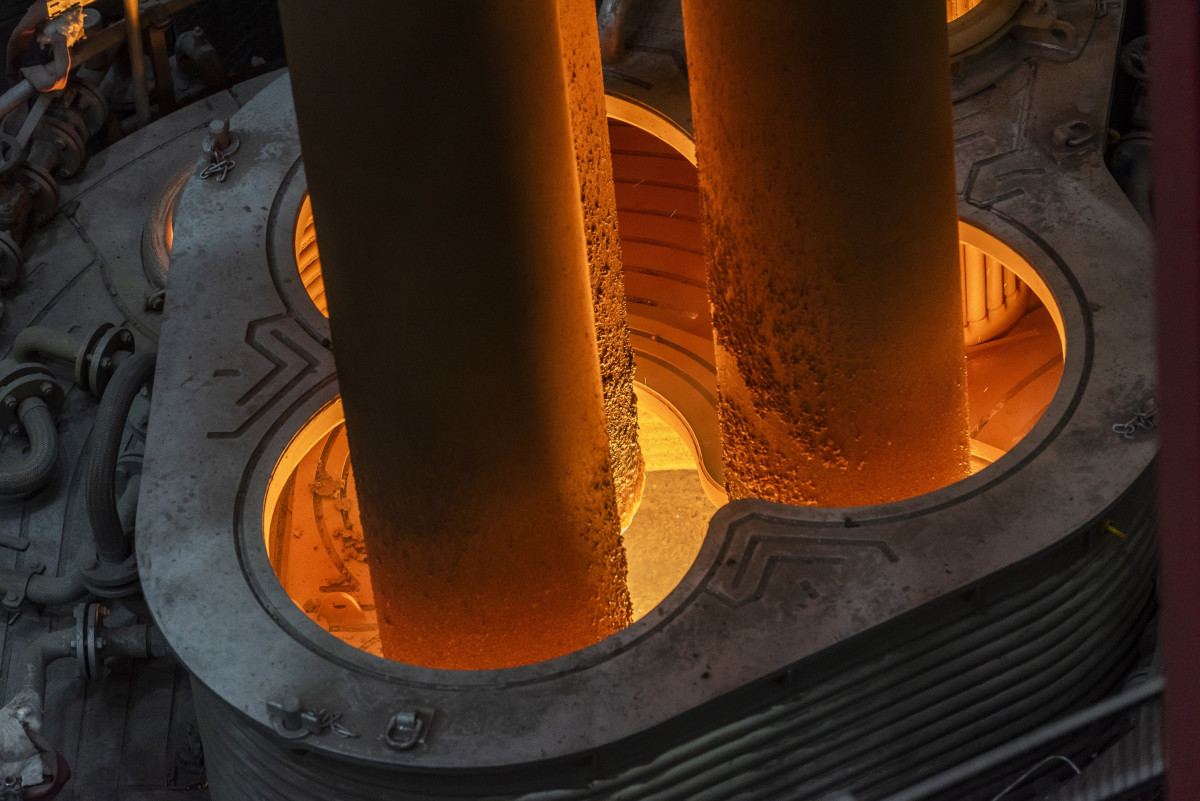Germany to open door for onshore CO2 storage in federal states
The German government is paving the way for previously prohibited underground CO2 storage in a bid to deal with the remainder of its greenhouse gas emissions that are difficult or impossible to avoid. The reform of the carbon storage law, agreed to today (29 May), would allow injection of CO2 off the country's coasts. In addition, it would enable federal states to decide whether to also allow onshore storage on their land. The draft reform now has to be debated and decided by parliament, which could still lead to significant changes.
"We will allow the offshore storage of CO2," economy minister Robert Habeck said. "We explicitly exclude marine protected areas from this." With the reform, Germany would be catching up with European neighbours, such as Norway, which has stored CO2 for some time. "We are facing up to the responsibility we have as a major industrialised country in Europe when it comes to dealing with greenhouse gas emissions," Habeck said.
Onshore storage could also be made possible, but only if a federal state decides to allow it through state laws. In the past, states have shied away from even allowing test storages sites, so it remains to be seen whether any government would make use of the option.
Regardless of this, onshore storage for research purposes will be made possible nationwide, said the government.
The storage law reform is a key element of the government's wider Carbon Management Strategy, for which the cabinet today only agreed key provisions, not yet the full strategy. This strategy will lay out how Germany aims to tackle hard-to-abate emissions from certain industrial processes as well as by gas-fired power plants by capturing and storing (CCS) or using emitted CO2 (CCU). The economy ministry had already presented these in February, but there are some minor changes, for example regarding faster permit procedures for carbon dioxide pipelines.
"CCS and CCU are to be made possible in Germany, otherwise the climate protection targets cannot be achieved," Habeck said.
The technologies that make carbon capture and storage (CCS) possible are supposed to help offset emissions in industries like cement or steel production, where a complete avoidance of carbon emissions is technically unfeasible or extremely expensive. Many of the technologies have not yet been proven at scale. Technologies to capture emissions at power plants, for example, are very energy-intensive and can only capture 85 to 95 percent of CO2.
CCS should not be confused with what is known as carbon dioxide removal (CDR) or “negative emissions,” although there is an overlap when it comes to transport and storage. CDR means the long-term removal and storage of CO2 from the atmosphere. This can include natural methods like afforestation and reforestation, as well as technological approaches, such as bioenergy carbon capture and storage (BECCS) and direct air carbon capture and storage (DACCS). Today's storage law reform thus serves both industrial CCS and carbon dioxide removal.
Germany to allow CCS on gas-fired power plants
The government aims to also permit capturing and storing CO2 from fossil gas-fired power plants, which Germany plans to use in the foreseeable future as backup capacity for intermittent renewable power production. These projects would not receive state support.
"The extent to which CCS can actually play a role for gas-fired power plants in the future will depend on the costs, infrastructure and flexibility of the plants," said Kerstin Andreae, head of energy industry association BDEW.
However, CCS will not be permitted for coal-fired power (and heating) plants. Years of protests against industry plans to use CCS as a lifeline for coal power have made the technology a no-go issue for many politicians in Germany, Europe and beyond.
Norway, which after the outbreak of Russia’s war on Ukraine has become Germany’s most important gas supplier, has already extensively tested and used offshore CCS and plans to sell storage capacity to foreign buyers. Transporting captured CO2 to its storage destinations still requires Germany to ratify changes to the London Protocol and make changes in national law, both of which the government intends to push. Large-scale carbon storage in the North Sea and abroad will also require the construction of hundreds if not thousands of kilometres of pipelines to transport carbon from where it is emitted. Today's law reform also aims to enable the construction of this transport infrastructure and speed up planning and permitting.
Carbon storage law could turn North Sea into "CO2 wasteyard" – NGO
Environmental NGO Greenpeace criticised the government’s proposed law, arguing that it would allow CCS too close to existing nature protection areas in the North Sea. The draft law presented by Habeck would amount to a “fossil pseudo solution” for dealing with residual emissions, Greenpeace climate expert Karsten Smid commented. Smid argued that CCS is currently “much too expensive, takes enormous efforts and needs decades to be implemented.” Moreover, it is not clear for how long CCS caverns will actually hold the stored CO2, as existing trial projects have shown that geological processes cause stored carbon to travel underground into other geological layers.
“If Habeck’s CCS strategy fails, we will be looking at a climate policy in shambles,” Smid warned. According to the Greenpeace expert, residual emissions could all be stored in natural CO2 sinks, such as forests or moorlands, if the industry makes sure that its remaining greenhouse gas output is brought to the technical minimum. “This would make much more sense and be a lot cheaper,” Smid added. NGO Environmental Action Germany (DUH) warned that the law could turn the North Sea “into a CO2 wasteyard” and “roll out the red carpet for the fossil industry.”
DUH head Sascha Müller-Kraenner called on the government to set clear and tight guidelines for using CCS. “Importing fracking gas shipped from the U.S. through the new LNG (liquefied natural gas) terminals and to then capture the CO2 emissions of new gas-fired power plants is absurd,” he argued.


